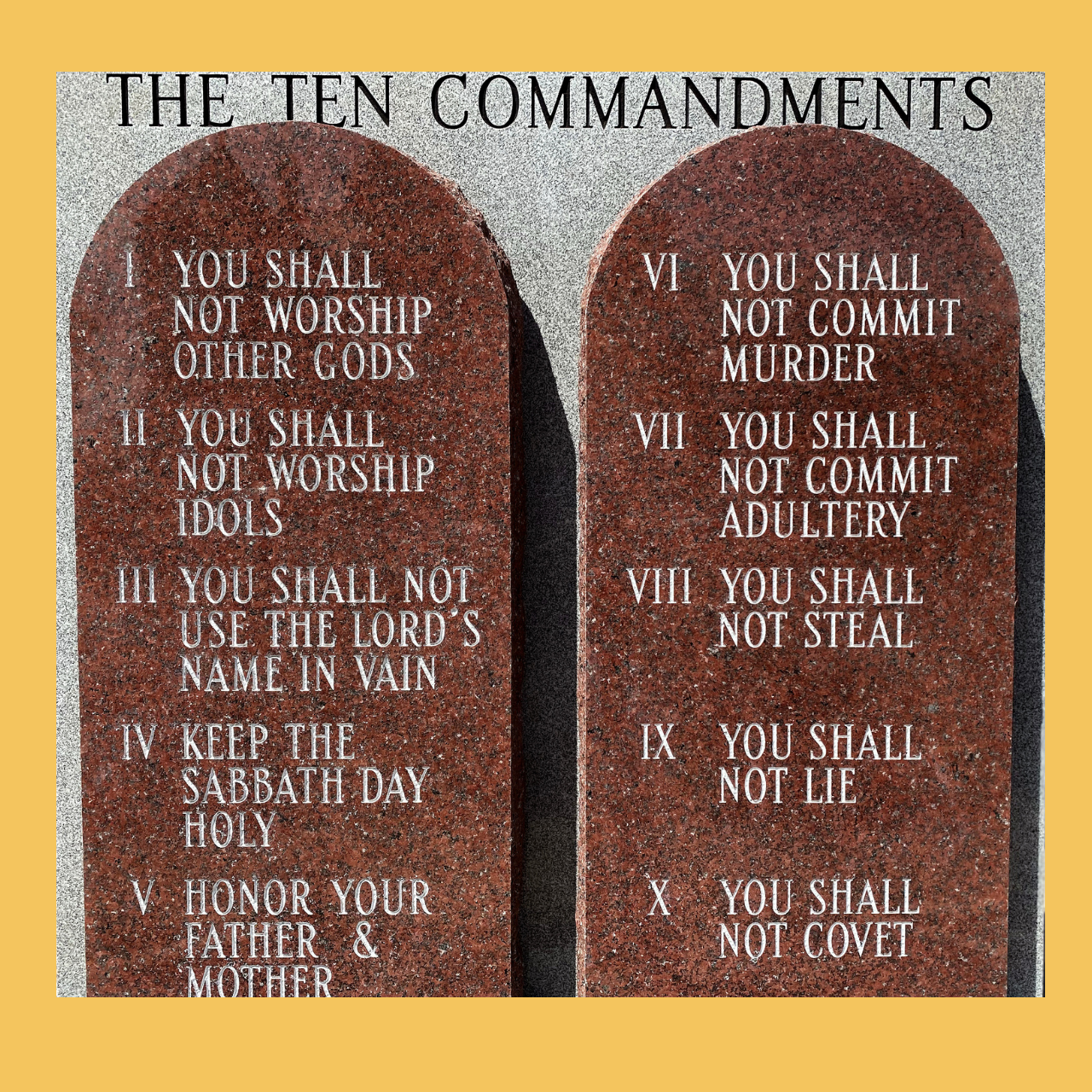
“You shall not make for yourself an idol, or any likeness of what is in heaven above or on the earth beneath, or in the water under the earth” (Exodus 20:4).
The Hebrew term for “idol” here is pesel, meaning a graven or carved image. While some cultures still worship physical idols today, the essence of this commandment reaches beyond physical objects. In Exodus 32, when the Israelites grew impatient waiting for Moses, they fashioned a golden calf from their jewelry and declared it their god. This demonstrates how quickly our hearts can turn to other “gods” when we fail to trust in Jesus fully. As we reflect on the second commandment, let’s remember that idols aren’t just physical objects but anything we prioritize over God. Through confession and repentance, we can leave the darkness of idolatry and step into Christ’s marvelous light.
Today’s focus is on the second commandment: “You shall not make for yourself an idol.”
Distinction Between the First and Second Commandments
You might wonder, “How is having no other gods different from not making idols?” While the first commandment prohibits acknowledging other gods, the second commandment warns against creating false images or conceptions of God. As Jesus declared in John 14:6, “I am the way and the truth and the life. No one comes to the Father except through me.” He is the exclusive path to God and the only one deserving of our worship. The Gospel Coalition clarifies, “The second commandment tells us not to worship God according to our own conception but according to who He truly is, as outlined in Scripture.” We must avoid reshaping God to fit our desires, creating a version of Him that aligns with our preferences rather than His revealed nature. This commandment calls us to worship God authentically, based on His self-revelation, and to recognize and reject any false gods in our lives.
Defining an Idol
Exodus 32:7-8 recounts the Israelites’ creation of a golden calf and their misattribution of God’s works to it. Their quick turn to idolatry exemplifies how the enemy tempts us to doubt, grow impatient with God, and redefine Him according to our terms. Many today profess faith in Jesus while holding beliefs that He never endorsed or supporting actions He never approved. It’s disheartening to see a culture that distorts the image of Jesus and His teachings. Yet, 2 Corinthians 4:8-9 reminds us, “We are perplexed, but not in despair.” God remains sovereign, aware of the enemy’s deception, and He will ultimately prevail. However, we must also guard against the enemy’s tactics. Doubt, impatience, and the temptation to reshape God according to our desires are dangers we face.
Real-World Examples
Doubt: “Did God actually say…”
Impatience: “I’m tired of not fitting in or holding back how I actually feel…”
Redefine: “This specific thing isn’t explicitly in the Bible, and Jesus is associated with sinners, so…”
The solution lies in asking whether our actions honor God and others. Even in “gray areas,” we should lean towards holiness to honor Christ rather than pursuing what we want, recognizing our own sinful tendencies.
Four Strategies to Guard Against Idolatry
Stay Vigilant with the Holy Spirit’s Help: Platforms like social media can quickly become avenues for self-idolatry or the worship of others.
Bring Your Doubts to God: Instead of allowing doubt to lead to impatience, engage in honest conversations with God. He cares about our struggles and invites us to seek His guidance.
Identify and Reject Lies: Ask the Spirit to expose and protect you from lies about God or yourself that lead to sin.
Embrace a Repentant Life: Regularly confess your sins and express gratitude for Jesus’ sacrifice. This humility prevents self-idolatry and keeps us aligned with God.
Reflect on potential idols in your life, such as:
Phone
TV
Popularity/Fame
Social Media
Ministries
Family
Friends
Hobbies/Sports
Celebrities
Food
Comfort
Fashion
Cars
Prestige/Money
Grades/Awards
The Ten Commandments
Commandments 1-4
You shall have no other gods before me. (Exodus 20:3)
You shall not make for yourself an idol. (Exodus 20:4-6)
You shall not take the name of the Lord your God in vain. (Exodus 20:7)
Remember the Sabbath day and keep it holy. (Exodus 20:8-11)
Commandments 5-10
5. Honor your father and mother. (Exodus 20:12)
6. You shall not murder. (Exodus 20:13)
7. You shall not commit adultery. (Exodus 20:14)
8. You shall not steal. (Exodus 20:15)
9. You shall not bear false witness against your neighbor. (Exodus 20:16)
10. You shall not covet your neighbor. (Exodus 20:17)
Conclusion
Jesus encapsulated the essence of these commandments. The first four focus on our vertical relationship with God, while the last six address our horizontal relationships with others. This week, let’s commit to trusting God, bringing Him our questions, and renouncing any idols. This might require more than prayer; sometimes it involves seeking accountability and creating an action plan. Consider asking a trusted mentor or friend for support in overcoming idolatry in your life.
